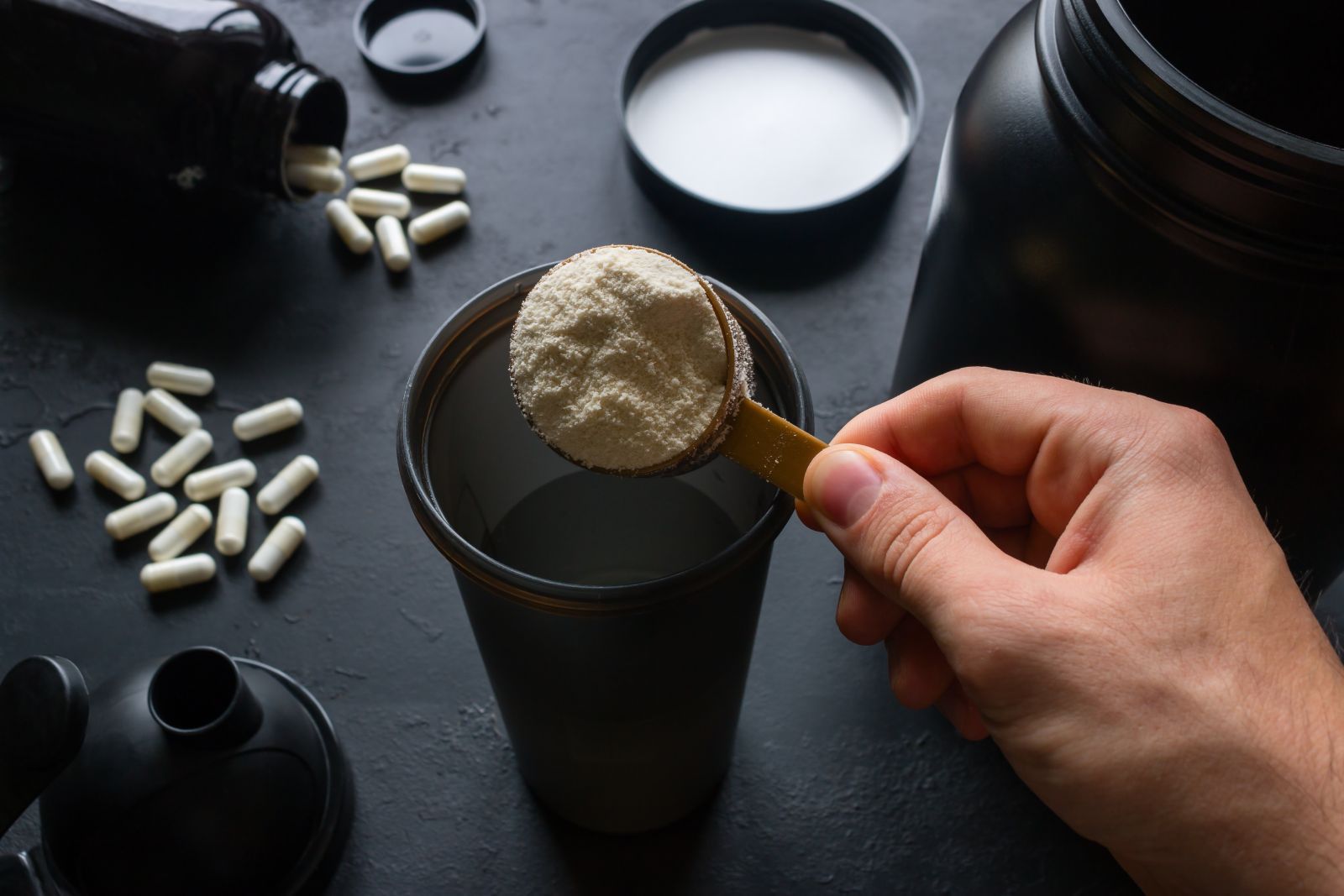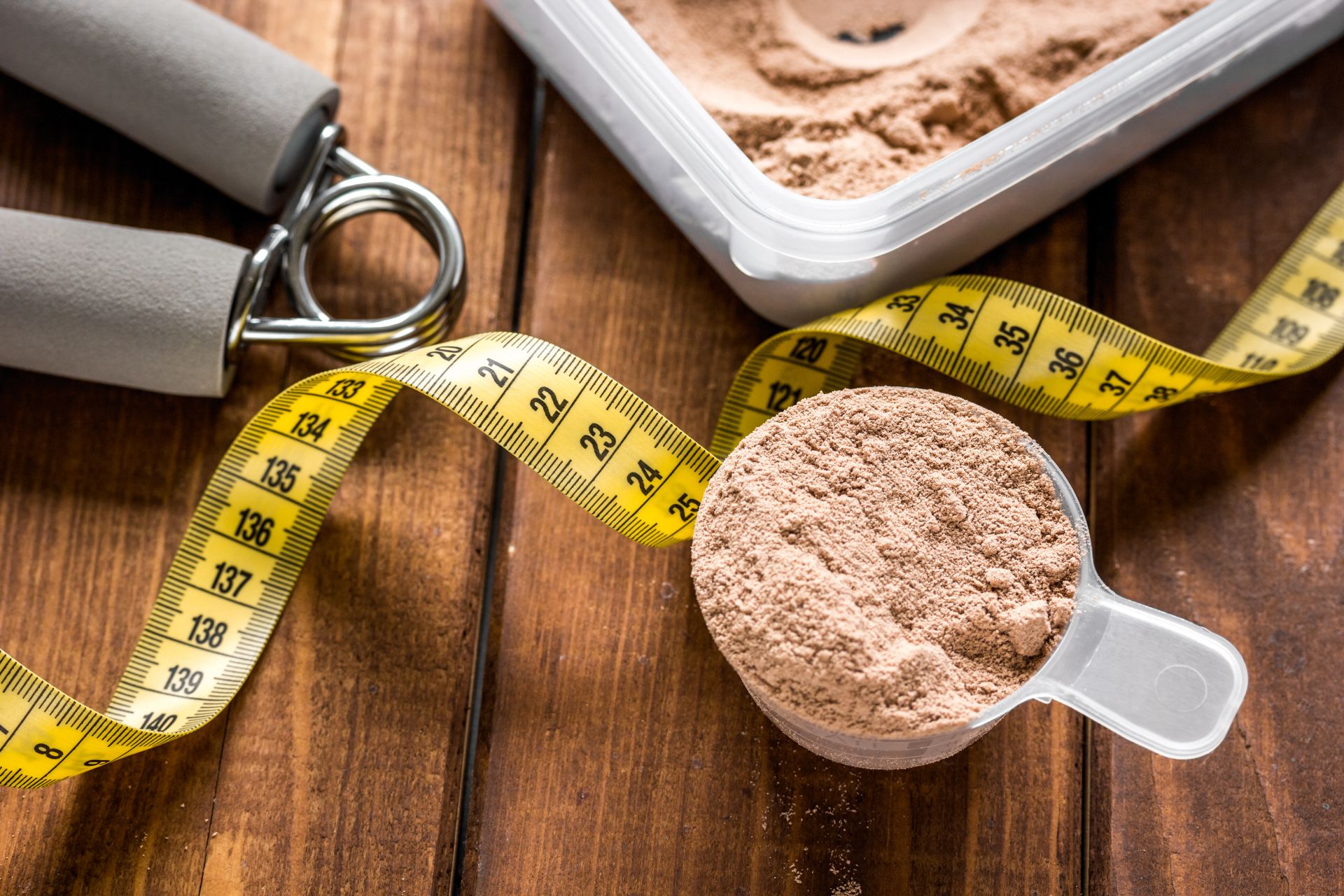5 rules for proper fat reduction

The desire to reduce body fat is the main reason why people decide to change their current eating habits and start exercising regularly. However, many people approach the fat reduction process in the wrong way, as they usually choose a very low-calorie diet and literally increase their physical activity levels intensively overnight. So let's learn the 5 most important rules for proper fat reduction.
- Balanced caloric deficit
- Adequate protein intake
- Regular strength training
- Attention to proper hydration
- Care for sleep and rest
- Patience, calmness and consistency in action
Balanced caloric deficit
The basic principle in proper fat reduction is the proper selection of a caloric deficit. A well-balanced fat reduction diet should be characterized by a moderate energy deficit (e.g. 500-600 kcal), which will translate into gradual weight loss and at the same time allow you to retain more muscle mass in the long-term weight loss process. Besides, generating a moderate caloric deficit will also help significantly reduce the potential negative metabolic consequences associated with long-term adherence to a reduction diet. It is important to avoid both very low-calorie diets containing only 1,000 kcal and diets that completely eliminate particular nutrients or specific food groups (e.g., gluten, dairy, fish, pulses, fruits, cereal products) during the fat reduction process, unless there are serious medical contraindications supported by appropriate diagnostics.
Adequate protein intake
Another principle in proper fat reduction is to consume adequate amounts of dietary protein, at least 1.2 g per kg of total body weight per day. A regular supply of good-quality protein from low-processed foods will preserve muscle mass during the long-term weight reduction process, and will also significantly affect the feeling of postprandial satiety, which will reduce the desire to snack. Practically speaking, each meal should contain 20 to 40 g of protein, depending on body weight. Examples of good dietary sources of protein include:
-
fish (e.g.: salmon, Atlantic mackerel, rainbow trout, halibut, cod, pikeperch, pollock, pollock, sole, hake),
-
seafood (e.g., shrimp, crayfish, clams, lobster, squid),
-
lean meats (e.g., skinless chicken or turkey breast, beef, veal),
-
cottage cheeses (lean or semi-skimmed),
-
country cheeses,
-
high-protein natural yogurts,
-
eggs,
-
Legume seeds (e.g., soybeans, lentils, beans, peas, chickpeas),
-
tofu,
-
tempeh,
-
sugar-free soy beverage,
-
seitan.
For people who are heavy and/or live in a hectic lifestyle, protein supplements such as whey protein concentrate (WPC), whey protein isolate (WPI), soy protein isolate and pea protein isolate can be an excellent addition to the protein diet.
Regular strength training
Regular strength training, both with one's own body weight and additional weight (including: barbells, dumbbells, kettlebells, resistance bands), is also an important part of proper fat reduction. It has been shown that systematic strength training during a period of fat reduction is the most effective way to protect against loss of lean body mass, which also prevents a decrease in the body's exercise capacity. In addition, regular strength training, combined with a well-composed fat-reduction diet, contributes to reducing the percentage of body fat, fat mass and visceral fat in healthy adults.

Attention to proper hydration
The fourth principle of proper fat reduction is to take care of proper hydration and drink an adequate amount of water each day, namely at least 1.5 liters. Studies have shown that people who provide adequate amounts of fluids every day, and even more so with unsweetened water, lose weight much more easily and have less difficulty maintaining a normal BMI in the long term. Water consumption increases energy expenditure and increases the rate of lipolysis, the breakdown of triglycerides into fatty acids and glycerol. Drinking 1-2 glasses of water about 30 minutes before each main meal can increase feelings of satiety and effectively promote weight loss, by up to 2 kg over a 3-month period.
Care for sleep and rest
The fifth rule for proper fat reduction is to take care of proper quality, regular sleep of between 7 and 9 hours per night in a darkened room. The right amount of sleep per day can be an extremely effective way to reduce feelings of hunger, especially during a long-term reduction diet. Limiting the length of sleep promotes increased feelings of hunger, which is a major factor hindering the successful reduction of excess body fat. Current research shows that a low amount of sleep, as well as poor quality of sleep, can contribute to an increase in body fat percentage, due to the regulation of the release of hormones such as insulin, cortisol, testosterone, growth hormone, leptin and ghrelin, which have an important impact on the appearance of the figure.
Patience, calmness and consistency in action
One more important rule that works perfectly for proper fat reduction is to stay calm and be patient and consistent in action. During the whole process of fat reduction, you should not make hasty steps, because it takes time to change eating habits and the appearance of the figure, just as the opposite process, i.e. weight gain did not suddenly happen by 5 kg in one week, but certainly occurred gradually over a longer period of time. For this reason, it is worth enjoying every small success that brings us closer to achieving the realistic figure goal we have set for ourselves.
Sources:
-
Kim JY: Optimal Diet Strategies for Weight Loss and Weight Loss Maintenance. J Obes Metab Syndr. 2021 Mar 30;30(1):20-31.
-
Hall KD, Kahan S.: Maintenance of Lost Weight and Long-Term Management of Obesity. Med Clin North Am. 2018 Jan;102(1):183-197.
-
Hall KD, Farooqi IS, Friedman JM, et al: The energy balance model of obesity: beyond calories in, calories out. Am J Clin Nutr. 2022 May 1;115(5):1243-1254.
-
Hall KD, Schoeller DA, Brown AW: Reducing Calories to Lose Weight. JAMA. 2018 Jun 12;319(22):2336-2337.
-
Hall KD.: Energy compensation and metabolic adaptation: 'The Biggest Loser' study reinterpreted. Obesity (Silver Spring). 2022 Jan;30(1):11-13.
-
Di Rosa C, Lattanzi G, Spiezia C, et al: Mediterranean Diet versus Very Low-Calorie Ketogenic Diet: Effects of Reaching 5% Body Weight Loss on Body Composition in Subjects with Overweight and with Obesity-A Cohort Study. Int J Environ Res Public Health. 2022 Oct 11;19(20):13040.
-
Bellicha A, van Baak MA, Battista F, et al: Effect of exercise training on weight loss, body composition changes, and weight maintenance in adults with overweight or obesity: An overview of 12 systematic reviews and 149 studies. Obes Rev. 2021 Jul;22 Suppl 4(Suppl 4):e13256.
-
Wewege MA, Desai I, Honey C, et al: The Effect of Resistance Training in Healthy Adults on Body Fat Percentage, Fat Mass and Visceral Fat: A Systematic Review and Meta-Analysis. Sports Med. 2022 Feb;52(2):287-300.
 ⮜ Previous article
⮜ Previous article
Which overnight protein?
 Next article ⮞
Next article ⮞